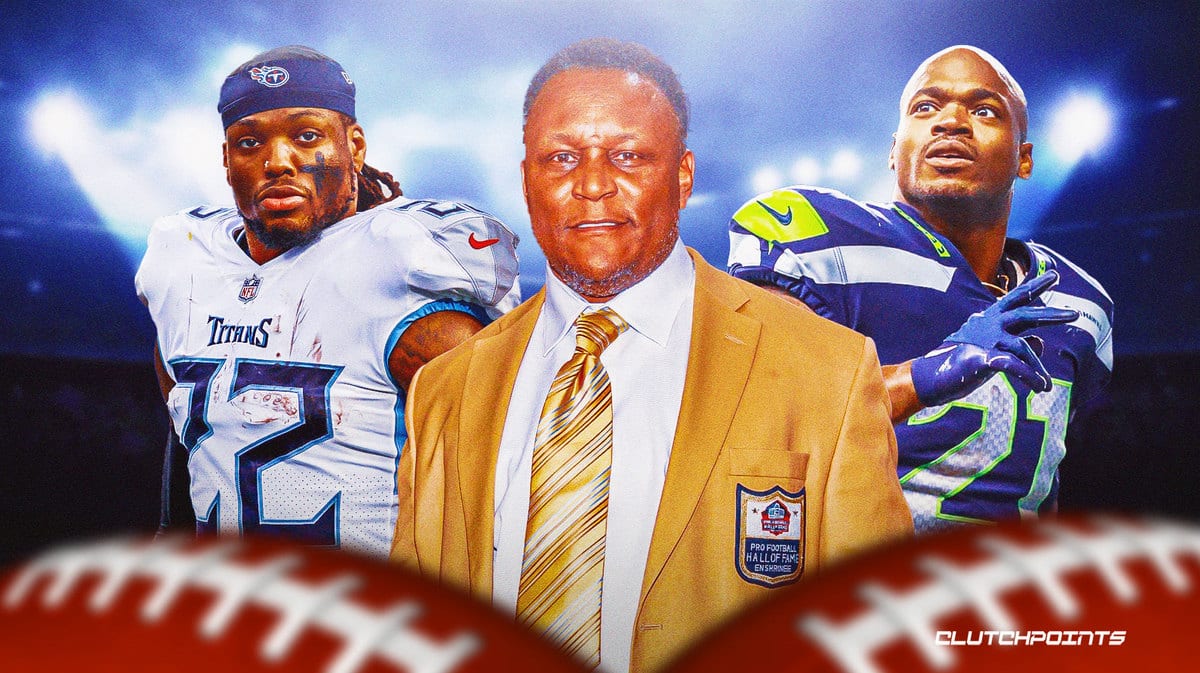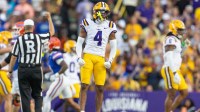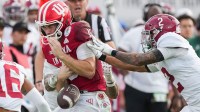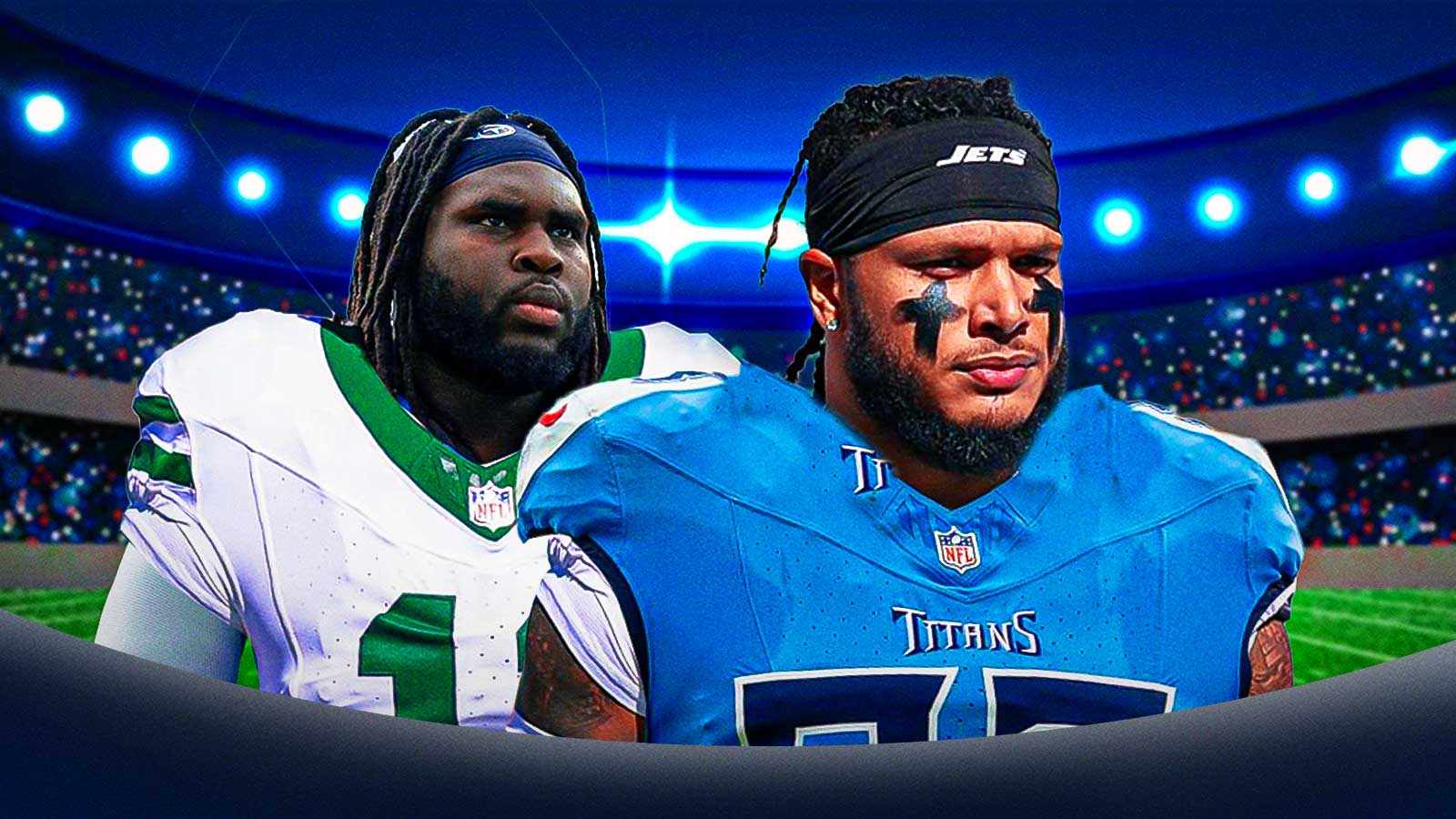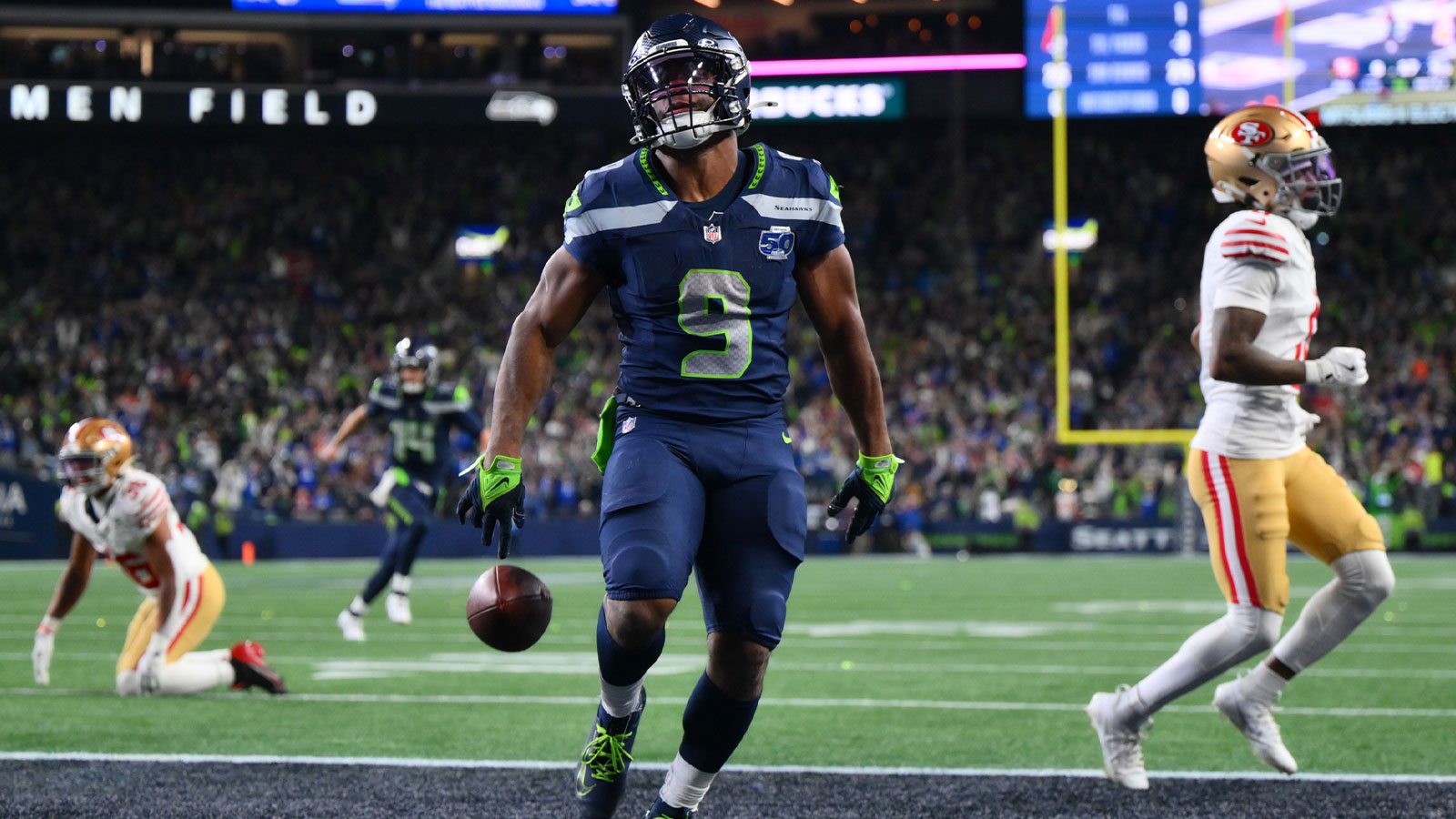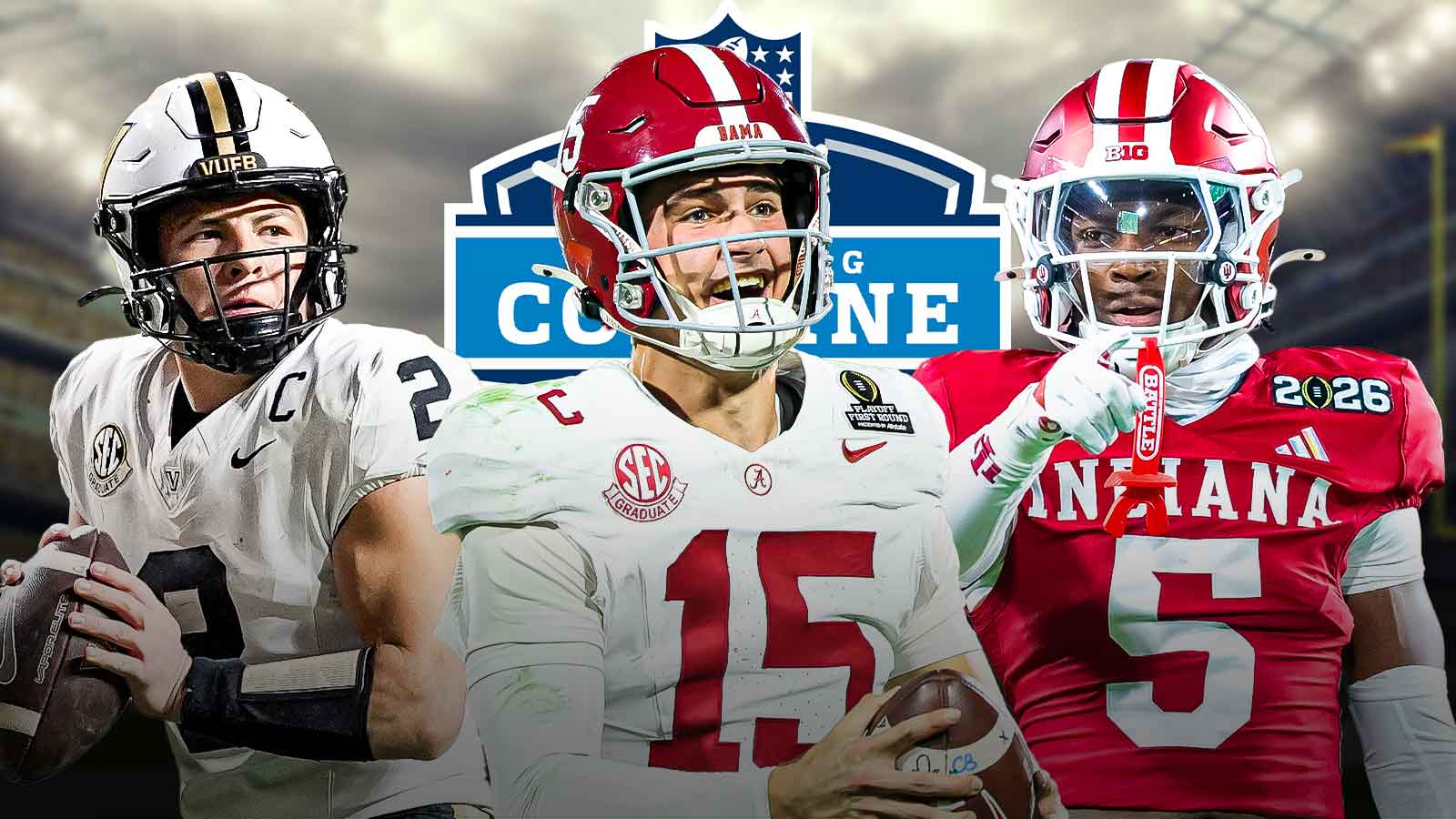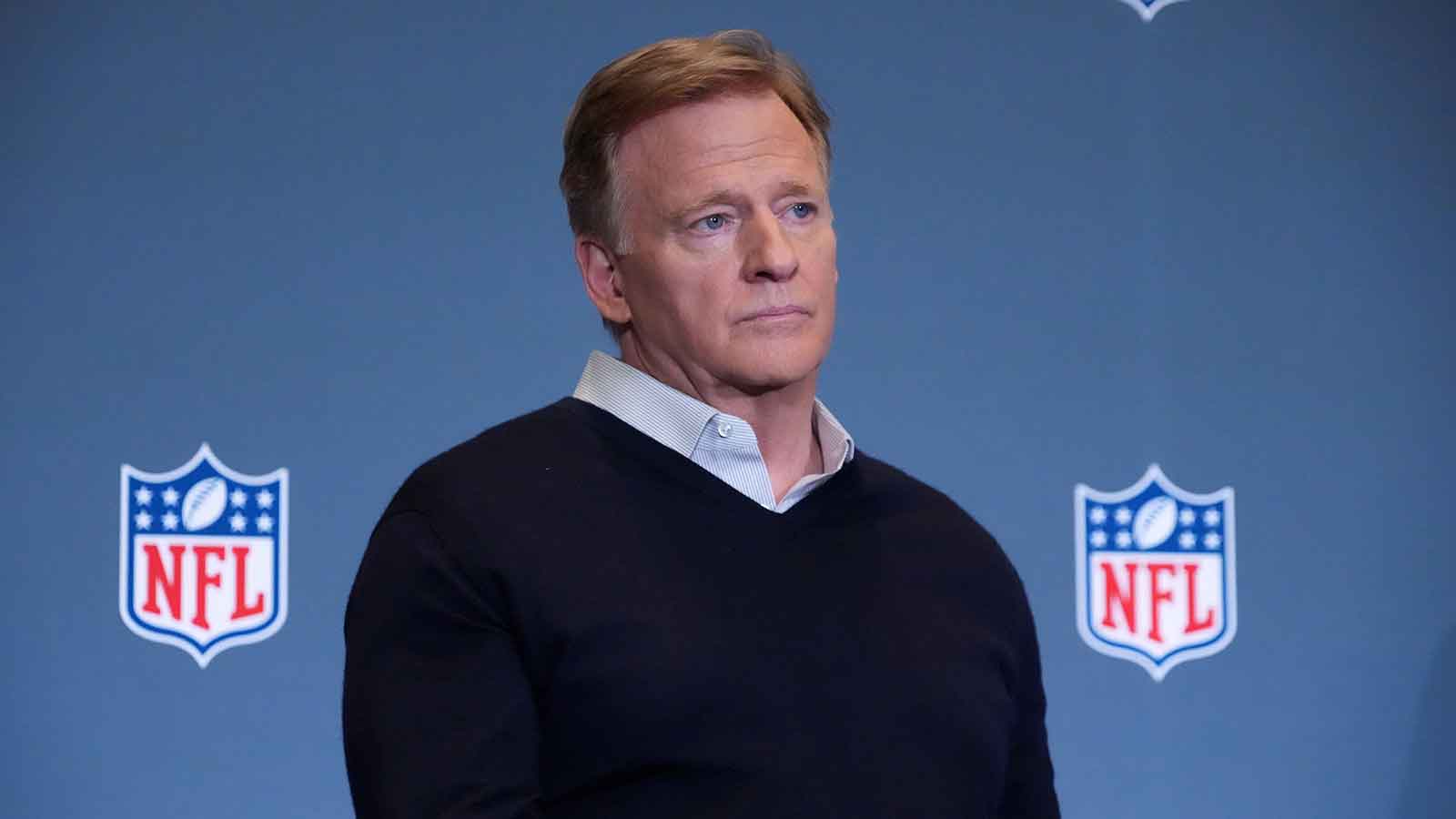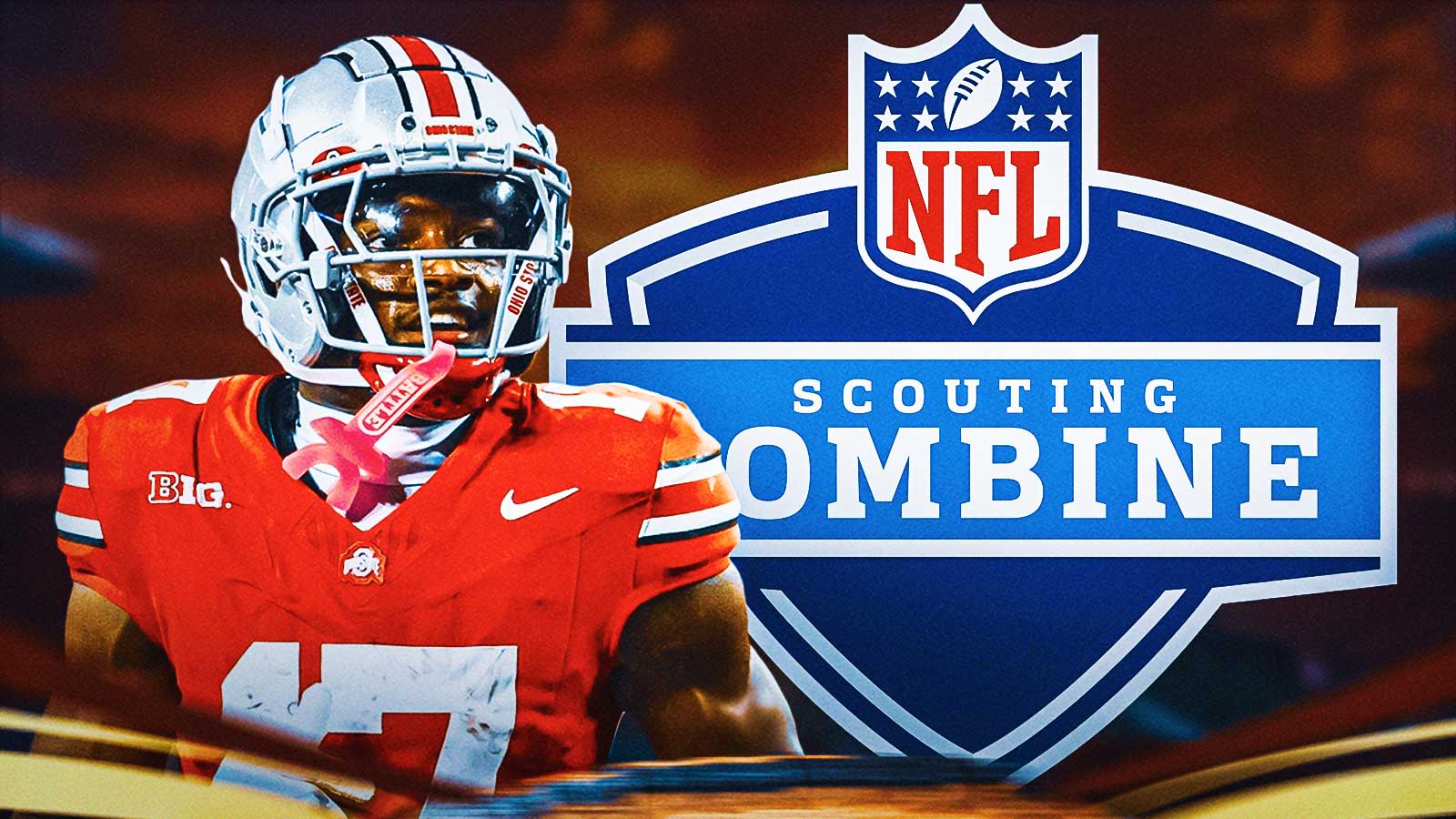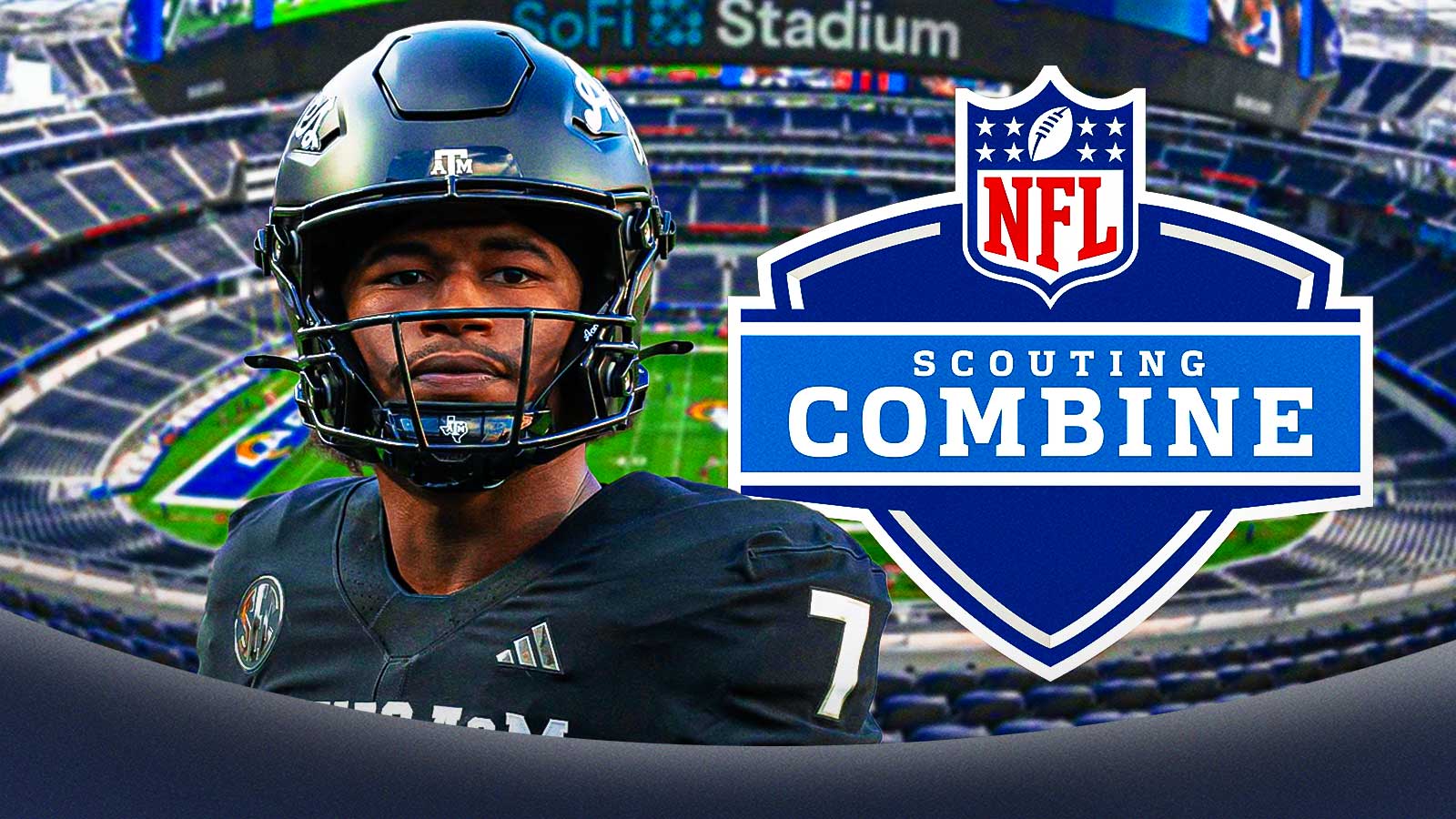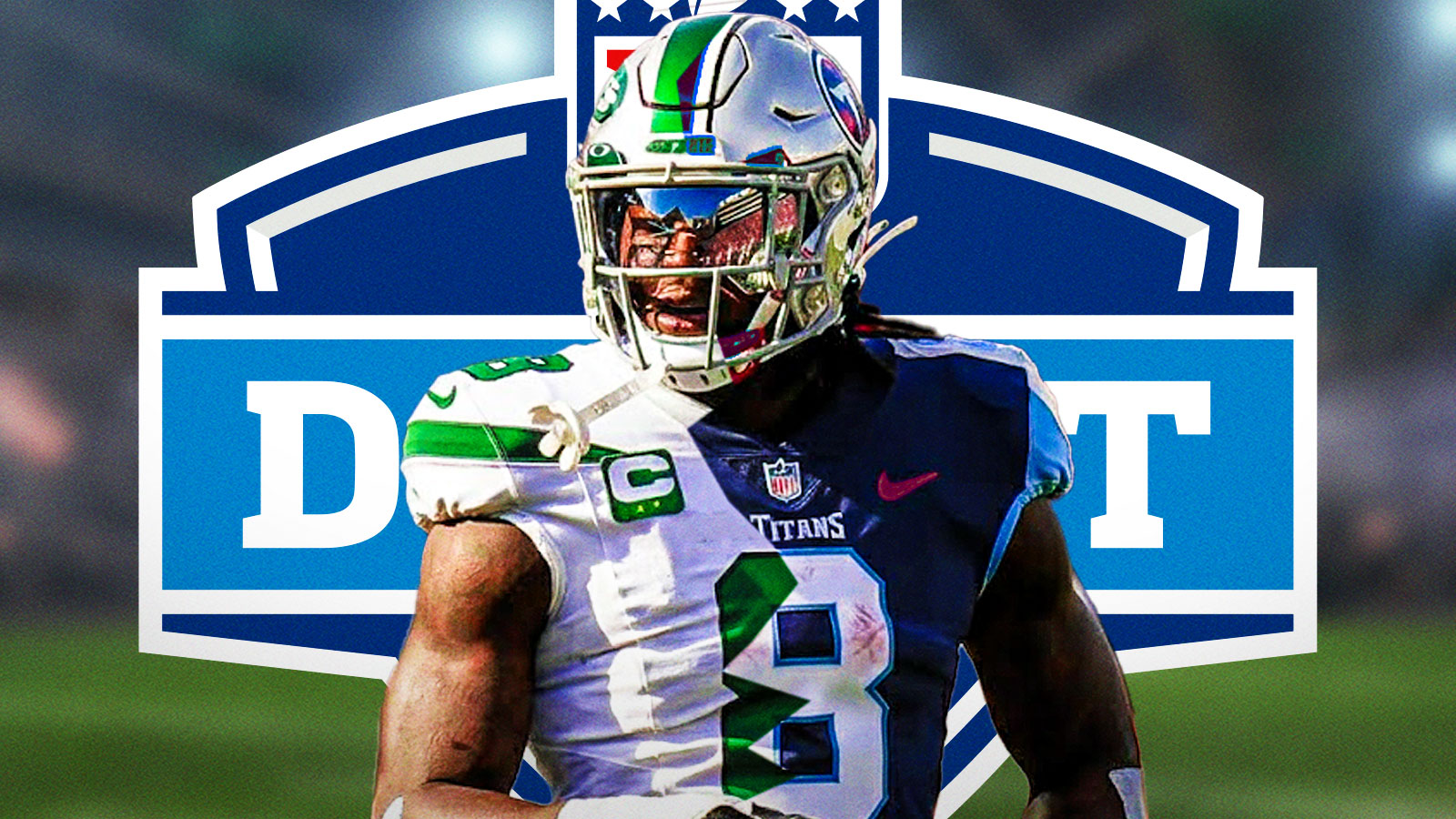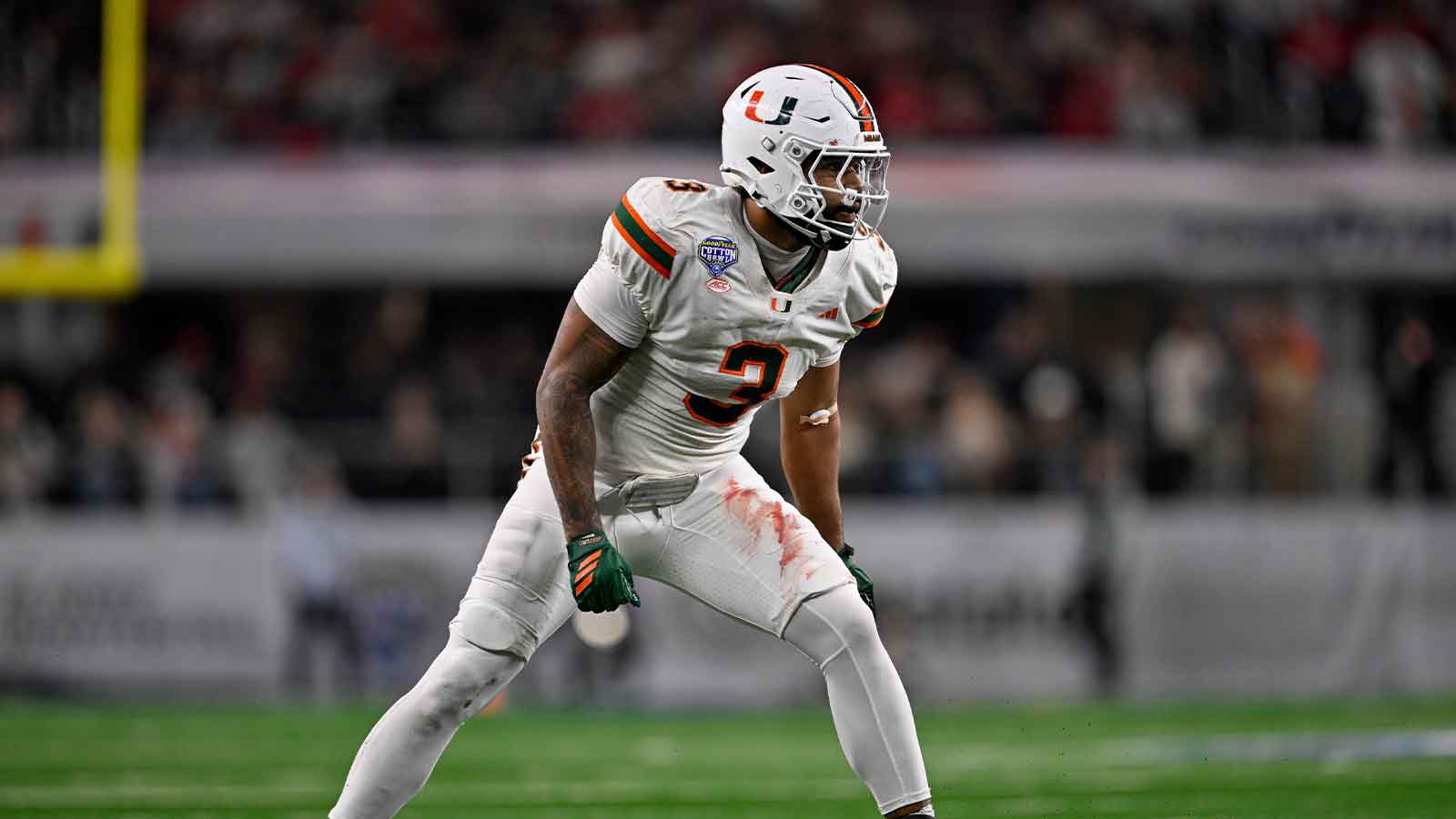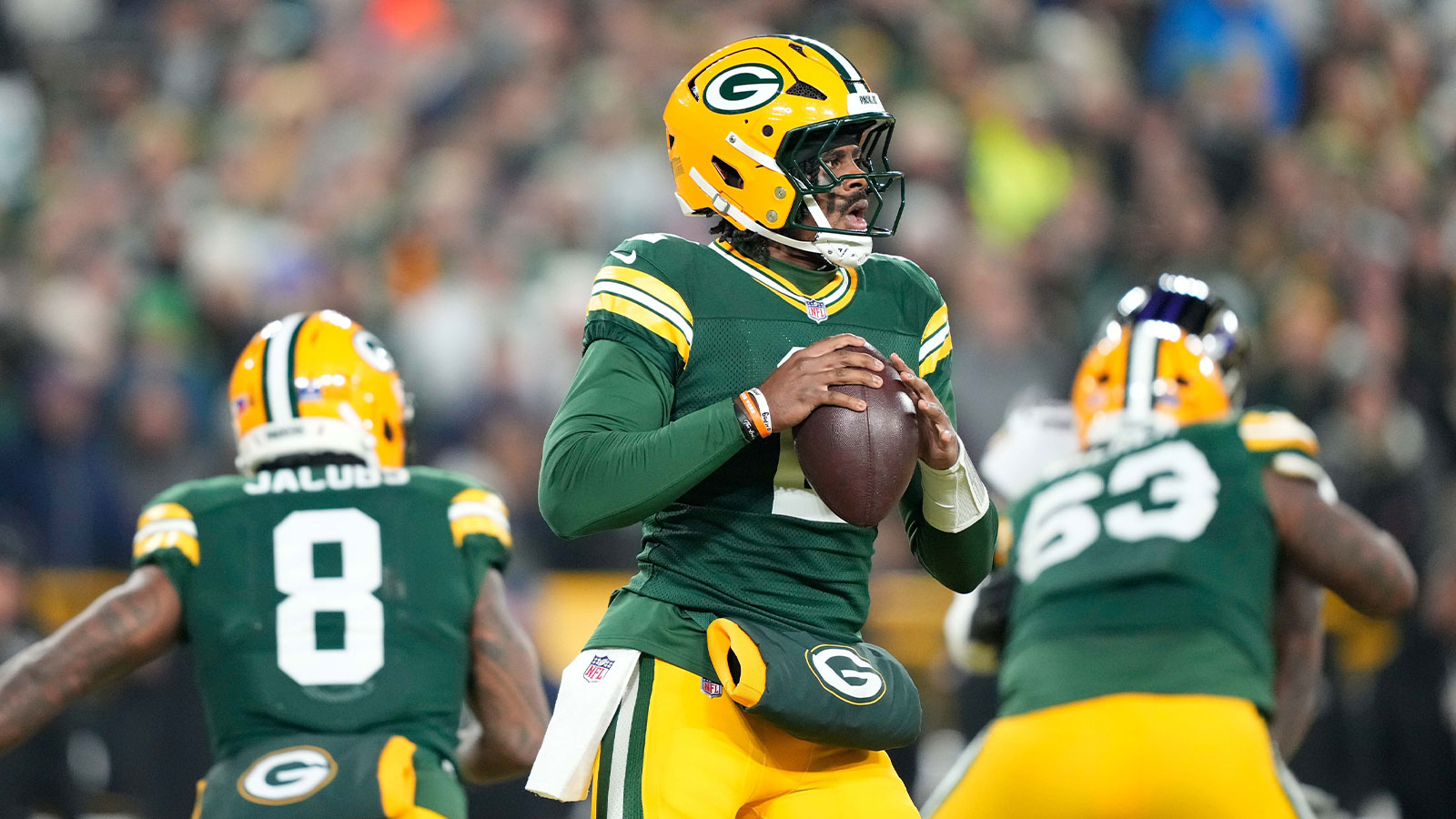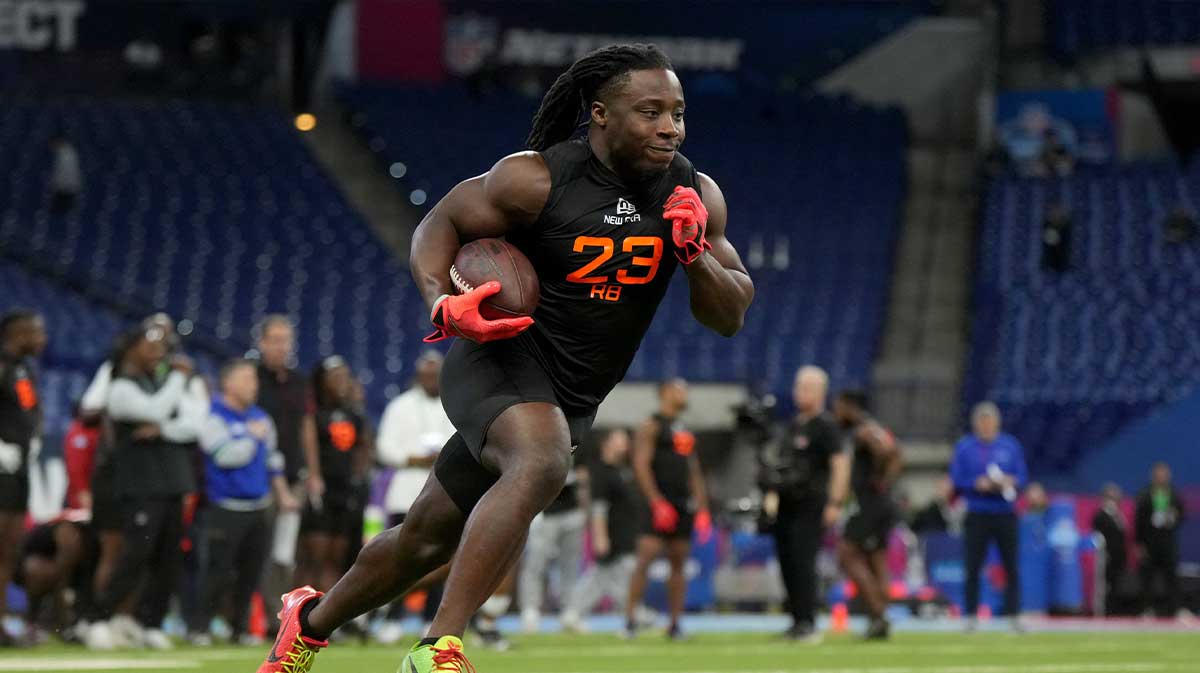Running backs in the NFL have been making news lately as they fight to get the value they feel they deserve for one of the most challenging positions in the game. Running back was one of the league's most glamorous positions for a long time. As the game has evolved into a pass-first environment, that's changed a little. But many great running backs have changed with it, redefining the position and what positional greatness means. Tackling the challenge of ranking and comparing great players across NFL eras is always challenging, but here are the 25 greatest NFL running backs of all time, ranked.
25. Derrick Henry
No other current running back has the claim to this list that Derrick Henry does. Many Heisman trophy-winning running backs have come through the league, and some have become legends while others have struggled to replicate their collegiate success. Henry has met the hype. And he didn't start hot and fade away like many running backs do. He's only gotten better with his time in the league so far. He is one of only eight players to ever rush for more than 2,000 yards in a single season, and no running back in the league today has been able to claim to be the best during King Henry's time in the league.
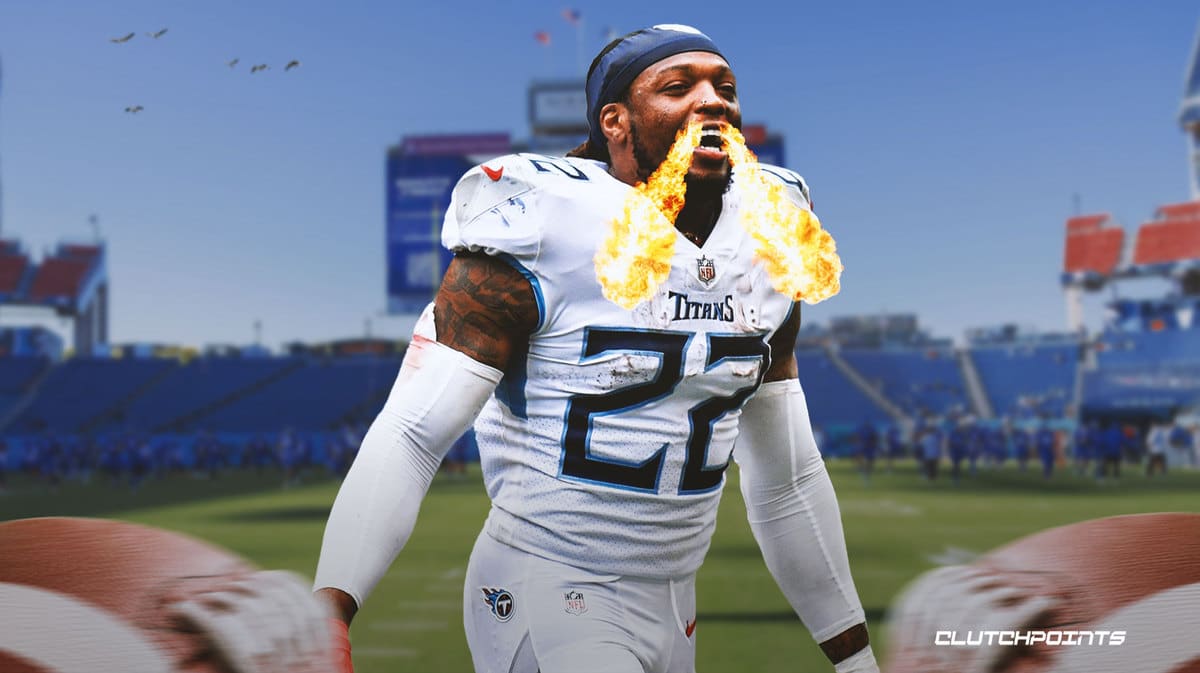
24. Jerome Bettis
“The Bus” was the ultimate bowling ball running back. Jerome Bettis preferred to run over and through anyone in his way rather than around them. And he did so with consistent success for over a decade. Although starting with the Los Angeles Rams, Bettis made his way over to the Pittsburgh Steelers after his third year in the league. There he'd quickly become a fan favorite, team leader, and one of the best players in the league. He was the emotional core of the 2005 Steelers team that won the team's first Super Bowl since the 1970s. Definitely one of the best NFL running backs.
23. Curtis Martin
Curtis Martin spent his career making AFC East defenses eat his dust, playing for the New England Patriots and New York Jets. Martin would spend most of his time with the Jets, becoming their all-time rushing leader as one of the premier running backs of the late 1990s and early 2000s. He was the key offensive piece in one of the Jets' latest competitive windows and has hands-down been the best Jet of the 21st century.
22. Marshawn Lynch
“Beastmode” was the player you thought of when you thought about the Seattle Seahawks for a long time. So much so that it's hard to remember he was drafted to the Buffalo Bills first. Lynch was the ground game that, along with an elite defense, put together the best Seattle Seahawks era in franchise history. Lynch was legendary for his “beastquake” runs, where he would tear through entire defenses, leaving them demoralized in his wake. He was so efficient converting on the goal line and in short-yardage situations that if not for Pete Carroll's baffling Super Bowl decision to throw on the 1-yard line against the Patriots, the Seahawks would probably be back-to-back champions.
21. Roger Craig
Roger Craig certainly isn't the first name you consider when considering the San Francisco 49ers and their 1980s and 1990s teams. But he's not too far behind the likes of Montana, Rice, and Young. Craig was the perfect running back for Bill Walsh's West Coast Offense, as he combined his great skill as a traditional running back with pass-catching that was critical to Walsh's system. He authored one of the league's first 1,000-yard receiving seasons by a running back in 1985. In 1998 he accounted for over 2,000 scrimmage yards to lead the league and earn OPoY honors. Craig would help lead his teams to three Super Bowl titles with his elite versatility and earned a spot on the 1980s All-Decade team. One of the best NFL running backs without a doubt.
20. LeSean McCoy
LeSean McCoy was one of the best of a talented-soaked era of NFL running backs in the 2010s. McCoy spent most of his time with the Philadelphia Eagles and Buffalo Bills. He showcased his otherwordly speed and agility as both an elite runner and an effective pass catcher. McCoy's shiftiness and lateral quickness made him the hardest man in the league to wrap up and bring down for a long time, earning him numerous Pro Bowl and All-Pro selections. In 2013 he led the league in touches, rushing yards, and yards from scrimmage and ultimately would be selected to the All-Decade team of the 2010s.
19. Jim Taylor
Jim Taylor was the premier running back for Vince Lombardi's Green Bay Packers and the NFL in the 1960s. Beginning his career in the late 1950s, Taylor would feature in four NFL Championships and Super Bowl I for the Packers. He operated in a very run-happy environment and managed to stand out regardless. Taylor's best season was his 1962 campaign. He and the Packers would finish 13-1 and win the NFL Championship. In 1962 Taylor led the league in touches, touchdowns, rushing yards, and yards from scrimmage as he won league MVP. Taylor's individual and team accomplishments make him the defining back of his era.
18. Edgerrin James
Edgerrin James burst onto the scene with the Indianapolis Colts in 1999. He led the league in rushing his first two years, posting an absurd 2,303 yards from scrimmage in his second season. James was a consistent dual-threat option for one of the most potent offenses in the league, helmed by Peyton Manning. Although Manning and receivers Reggie Wayne and Marvin Harrison got much of the attention, James led the league in Pro-Football Reference's Approximate Value stat. By some statistical measures, he was the league's most valuable player.
17. Lenny Moore
Lenny Moore was far ahead of his time. Moore played for the Baltimore Colts in the 1950s and the 1960s, where he would help them win two NFL Championships. He was a great runner, with three seasons ending with an average of over seven yards per carry, a number we will never see again. But he was an even more prolific receiver out of the backfield. In 1958 he had over 900 yards receiving, well before dual-threat backs came into vogue in the league. He also led the league in yards per touch for six seasons in a row, meaning he was the most dangerous person in the NFL with the ball in his hands for six straight years. He was even selected as MVP by the NEA in 1964. That kind of dominance and elite playmaking earned him a spot in the Hall of Fame and on the 1950s All-Decade team.
16. Thurman Thomas
Thurman Thomas came into the league and dominated. Thomas would help lead the Buffalo Bills to four consecutive Super Bowl appearances, and they would have one of the best offenses in the league during Thomas' tenure. Thomas would (not) coincidentally lead the league in yards from scrimmage for four straight years, highlighted by his 1991 MVP-winning season with over 2000 yards from scrimmage gained and a league-leading 4.9 yards per attempt rushing. Only to go and outdo himself the following year with over 2100 scrimmage yards and entirely falling off the ballot. Such is the life of the running back. But the Hall of Famer was dynamite and a significant catalyst for the 1990s Bills.
15. Franco Harris
Just one of the ten Hall of Famers who played for the Pittsburgh Steelers in the 1970s, Franco Harris might have been the best. At least on offense. Harris' consistent elite play from the running back position was a constant during the Pittsburgh dynasty of the 1970s. He was Rookie of the Year in 1972 and then earned Super Bowl MVP honors for the Steelers' first title in Super Bowl IX. Harris was a fixture in the Steeler backfield throughout the team's most successful decade, not to mention a fixture at the Pro Bowl. He earned that honor in the first nine seasons he played in the league.
14. Terrell Davis
Terrell Davis is just one of many NFL running backs whose career was cut short by injury, but he was absolutely one of the best. Davis ran wild over the league in his four full seasons of healthy action. Twice winning OPoY and finishing top three in MVP voting in three years, it's possible Davis had the best career peak of any running back in NFL history. Not to mention the fact that he helped lead the Denver Broncos to their first Super Bowl wins in 1997 and 1998. Oh yeah, and he actually won the MVP award in 1998 too. There's no telling just how high up this ranking Davis might have climbed had he stayed healthy. Although the Hall of Famer got a lot done anyway.
13. Tony Dorsett
Tony Dorsett came into the league right after winning the Heisman trophy and immediately helped get the Dallas Cowboys back over the hump and win the Super Bowl in 1977. The Pitt product was the consensus Rookie of the Year across the four media groups that selected one. Dorsett was always the most electric player on any field he stepped on, evidenced by when he set an unbreakable NFL record with a 99-yard rushing touchdown in 1982.
12. Bo Jackson
There is no greater what-if in professional football than Bo Jackson. No more extraordinary athlete has played American pro sports than Jackson. Blessed with the speed and power of an elite running back and professional baseball player, Jackson remains one of the most iconic athletes ever. He threatened to score whenever he had the ball. As evidence: he had league-best 88,91 and 92-yard touchdowns during three of his four seasons. He finished his professional career early due to injuries but also finished with over five yards per carry and as one of the brightest stars to ever come through the league.
11. Earl Campbell
When Earl Campbell entered the league, defenses immediately wished he hadn't. Campbell led the company in rushing his first three years, won Rookie of the Year, then MVP, and was Offensive Player of the Year all three seasons. Campbell's career trajectory never hit the heights it did those first three years, but he was so good that despite only playing two years in the 1970s, the Hall of Fame selected him to the 1970s All-Decade team.
10. Marshall Faulk
You can't have “The Greatest Show on Turf” without generational talents on the field. Marshall Faulk was the engine behind that show. Faulk was the ultimate do-it-all back, starting in Indianapolis, where he'd win Rookie of the Year before reaching legend status in St. Louis with the Rams. Faulk would win Offensive Player of the Year three consecutive seasons with the Rams, including putting together an MVP season before the next year setting a then-record with 2,429 yards from scrimmage.
9. O.J. Simpson
Enough has been said about O.J. Simpson, the person to fill several books. However, you cannot document the history of NFL running backs without him. Simpson was the first back to rush for more than 2,000 yards in 1973, winning MVP honors that year. That year was just one of four times he was top-four in MVP voting and one of four times he led the league in rushing. The Buffalo Bills weren't much to write home about in the 1970s, except they employed one the best running backs in NFL history.
8. Gale Sayers
Gale Sayers, another all-timer robbed of more due to injury. Sayers had the misfortune of playing for the Chicago Bears between their pre-Super Bowl NFL Championships and the 1980s championship window. Despite that, he was the most exciting player in the league when he was healthy. In his five healthy seasons, Sayers was first-team All-Pro five times. He would also finish in the top five of MVP voting each of those years as well. Sayers still holds an NFL record with six touchdowns scored in a game and was as much a return threat as he was one out of the backfield.
Gale Sayers vs. the 49ers in 1965:
– 4 rushing TD
– 1 receiving TD
– 1 punt return TDSIX total touchdowns is an NFL single-game record that still stands today.
(🎥 @NFL)https://t.co/HGssBd8nsB
— NFL on CBS 🏈 (@NFLonCBS) September 23, 2020
7. Emmitt Smith
Emmitt Smith is the all-time NFL rushing yards leader, and by a good margin too. Smith won nearly every individual award possible as a running back in the NFL, including ORoY, MVP, and Super Bowl MVP. Smith was arguably the best player on the best team of the 1990s, the Dallas Cowboys. Along with fellow triplet members and Hall of Famers Michael Irvin and Troy Aikman, Smith helped lead the Cowboys to three Super Bowls during the decade. In 15 seasons, Smith only played less than 14 games once. And in those seasons, he always had at least 937 rushing yards.
6. Adrian Peterson
In a time when the status of the running position was beginning to fade, Adrian Peterson kept it at the front of people's minds. Peterson had the best rushing season since 1984, if not ever in 2012. In one of the best injury comebacks ever, Peterson finished with 2,097 rushing yards, just eight shy of the single-season record. And he did so on six yards per carry, terrorizing defenses all season long and winning MVP just a year after tearing his ACL. Peterson is a Minnesota Vikings legend, yet he still managed to be productive in Washington as he began to age. Defying the norms, he tore up the league for 15 seasons before retiring, establishing himself as one of the best.

5. Eric Dickerson
In case you were wondering who that 1984 performance belongs to, it's Eric Dickerson. No one has rushed for as many yards in a season as Dickerson did for the Los Angeles Rams. Dickerson may have lost the MVP race to Dan Marino, but Marino wasn't averaging an unbelievable 131.6 rushing yards per game. Dickerson would lead the league in rushing four times, be an All-Pro another five times, and be one of the defining players of the 1980s. He won Rookie of the Year in 1983 and managed to get at least an Offensive Player of the Year award for his troubles in.
4. LaDainian Tomlinson
LaDainian Tomlinson has been the best running back in the NFL of the 21st century. LT's 2006 season will live on in the records books forever. During that season he had over 1,800 rushing yards, more than 500 yards receiving, three receiving touchdowns, and an NFL record 28 rushing on his way to becoming MVP. He ran for at least 1,200 yards in his first seven seasons, while in his eighth, he added another 1,100. Along with quarterback Philip Rivers, he led one of the league's most underrated teams in San Diego, routinely leading the Chargers to a top spot among NFL offenses.
3. Barry Sanders
Barry Sanders was not the last Detroit Lions' legend to retire early, or even the last Lion to be one of the best ever to walk away early. But he was the first and the one that hurt most. Sanders played the position better than anyone else in the league for ten straight years. He made the Pro Bowl every year in the league and only played less than 15 games in a season just once. He electrified the league with his vision, speed, elusiveness, and power. He'd lead the NFL in rushing four times, and throughout his career only had less than 1,300 rushing yards in a season once (he never had even less than 1,100). Sanders was the first person to sniff at Dickerson's single-season rushing record when, during his 1997 MVP campaign, Sanders finished with the then second-highest single-season total ever with 2,053 yards on the ground.
2. Walter Payton
For many people, if they think about NFL running backs they think about Walter Payton. And if they think about the Chicago Bears they think about Sweetness. For 13 years Payton was a workhorse on the ground. From the bad teams in the 1970s the absolute juggernaut the Bears became in the mid-1980s, Payton was there. He could do it all. Payton was in the conversation for MVP throughout the run of the best Bears teams ever from 1984-86. He even won the award way back in 1977, when no one in Chicago was supposed to be doing much of anything on the league-wide stage. Payton's impact extends beyond his legacy as one of the greatest ever. The NFL's Man of the Year award would be named after him due to his longstanding commitment to humanitarian work.
1. Jim Brown
Jim Brown dominated the league from the running back position like no one ever has before or since. Brown was a fixture in the Cleveland Browns' backfield for nine years, from 1957-1965. During that time Brown led the league in rushing eight times, made the Pro Bowl nine times, won three MVP awards, and only finished outside of the top five in MVP voting once. No one has played running back in the NFL like Brown did, before or since. He helped lead the Browns to their last NFL Championship and is still, by a wide margin, the greatest Cleveland Browns player of all time.

